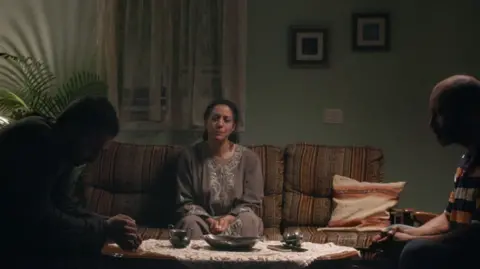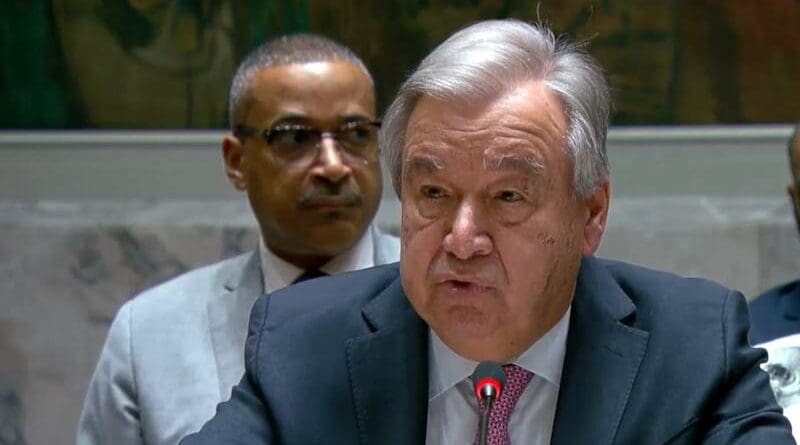An apocalyptic war is a Biblical ‘end of war’ War that uses the word Armageddon from the Biblical Hebrew Har Meghiddo, meaning “Mountain of Megiddo”. Har Magedon, which is 80 miles north of Jerusalem, is the symbol of a major battle in which, when the need is greatest and the believers are most oppressed, God reveals His power to His distressed people; and their evil enemies are destroyed. The word Armageddon does not appear in the Hebrew Bible and appears only once in the Greek New Testament, in Revelation 16:16.
Many religious people now think that the road to Armageddon started with the Hamas October 7th 2023 massacre in Israel, when 3,000 terrorists burst across the border into Israel from the Gaza Strip by land, air and sea, killing some 1,200 people and seizing 251 hostages of all ages. Armageddon is a warning of humanity’s need to change to avoid Armageddon.
Like Judaism and Christianity, Islam has a powerful eschatological strain. It anticipates the end to the world as we know it; a final Last Day confrontation between good and evil (Armageddon); after which, with God’s help, human life will be rewarded and transformed into the Messianic Age of peace and prosperity.
As the Qur’an states: “Verily! Those who believe and those who are Jews, Christians, and Sabians, whoever believes in Allah and the Last Day, and do righteous good deeds, shall have their reward with their Lord, on them shall be no fear, nor shall they grieve.” (2:62 and 5:69)
Notice that the Qur’an specifically stresses religious pluralism applies on God’s judgment day.
As ibn Babuya writes in Thawab ul-A’mal, “The Apostle of God said: `There will come a time for my people when there will remain nothing of the Qur’an except its outward form, and nothing of Islam except its name, and they will call themselves by this name even though they are the people furthest from it. “The mosques will be full of people but they will be empty of right guidance. The religious leaders (Fuqaha) of that day will be the most evil religious leaders under the heavens; sedition and dissension will go out from them and to them will it return.”
This sounds, and indeed is, terrible. But, those who trust in God know that the night is coldest in the last hours before sunrise. Secularists believe that these apocalyptic visions of a future (Armageddon) are absurd, although many secularists themselves fervently believe that runaway genetic modification of food and/or extreme climate change is going to doom human civilization in future generations.
The basic difference between the pessimistic, humanist secularists and the religious optimists is that those who believe in the God of Abraham also believe that God’s inspiration and guidance guarantees that the spiritual forces of good, will overcome all the world’s evils at the end of days; and justice, peace and religious pluralism will prevail. Or as Prophet Micah envisions it: (4:1-5)
“In the end of days the mountain of the Lord’s Temple will be established as the highest mountain; it will be exalted above the hills, and peoples will stream to it. Many (not all) nations will come and say, ‘Come, let us go up to the mountain of the Lord, to the Temple of the God of Jacob. who will teach us his ways, so that we may walk in his paths.
“Torah will be broadcast from Zion, and the word of the Lord from Jerusalem. God will judge between many (not all) peoples and will settle disputes among powerful nations far and wide. They will beat their swords into ploughs, and their spears into pruning hooks. Nation will not take up sword against nation, nor will they train for war any more.
“Everyone will sit under their own vine and under their own fig-tree, and no one will make them afraid, for the Lord Almighty has spoken. All the nations will walk in the name of their gods, and we (Jews) will walk in the name of the Lord our God for ever and ever.”
Thus, the Hebrew Bible and the Qur’an’s final judgement is the self-destruction of violent, hate filled, religion twisted terrorism and narrow ‘my way or death’ philosophy (Armageddon); and the victory of kindness, love, democracy and religious pluralism.
The Qur’an refers to Prophet Abraham as a community or a nation: “Abraham was a nation/community [Ummah]; dutiful to God, a monotheist [hanif], not one of the polytheists.” (16:120) If Prophet Abraham is an Ummah then fighting between the descendants of Prophets Ishmael and Isaac is a civil war and should always be avoided.
If all Arabs and Jews can live up to the ideal that ‘the descendants of Abraham’s sons should never make war against each other’ is the will of God; we can help fulfill the 2700 year old vision of Prophet Isaiah: “In that day there will be a highway from Egypt to Assyria. The Assyrians will go to Egypt, and the Egyptians to Assyria. The Egyptians and Assyrians will worship together. On that day Israel will join a three-party alliance with Egypt and Assyria, a blessing upon the heart. The LORD of Hosts will bless them saying, “Blessed be Egypt My people, Assyria My handiwork, and Israel My inheritance.” (Isaiah 19:23-5)
Although it might seem impossible now, I do believe that within a decade or two Muslims will visit Jerusalem and pray together with Jews as Prophet Isaiah states: “And the foreigners who join themselves to the (monotheistic one) Lord, to minister to him, to love the name of the Lord, and to be his servants, everyone who keeps the Sabbath and does not profane it, and holds fast to my covenant, these I will bring to my holy mountain (Zion), and make them joyful in my house of prayer; their burnt offerings and sacrifices will be accepted on my altar; for my house shall be called a house of prayer for all peoples.” (Isaiah 56:6-7)
As the Qur’an states: “And We certainly sent Moses with Our signs, [saying], “Bring out your people from darkness into light, and remind them of the days of Allah .” Indeed, there are signs for everyone patient and grateful.” (14:5) and “Allah is an ally of those who believe. He brings them out from darkness into light.” (2:257) This Light that comes out of Darkness is not natural light. It is the light of religious enlightenment. There are lights coming out of the darkness.
The Hamas controlled health ministry said that the death toll in Gaza since October 7 had passed 42, 000, ignoring the fact that the UN had reduced its Estimate of Women and Children Killed in Gaza by half, said the Foundation for Defense of Democracies. The UN Office for Coordination of Humanitarian Affairs (OCHA) has also revised its child fatality figure from the Gaza war sharply downward, reporting 14,500+ deaths on May 6 but 7,797 on May 8.
OCHA also revised downward its figure for female fatalities from more than 9,500 deaths to 4,959 deaths. The Gaza Ministry of Health admitted it did not have names for more than 10,000 of the individuals it claimed to be deceased. Also an Associated Press analysis of Gaza’s Hamas-run health ministry data, has found that the death rate for women and children in October 2023, when the war began following Hamas’s October 7 onslaught, was above 60 percent. By April, 2024 it was below 40%. That is a 1/3 reduction in fatalities.
As the Qur’an states: “Perhaps Allah will put, between you and those to whom you have been enemies among them, affection. And Allah is competent, and Allah is Forgiving and Merciful.” (60:7) Then the words of the Qur’an will be full-filled “From the depths of Darkness into the Light; for Allah is very kind and merciful to you.” (57:9)
Congresswoman Rashida Tlaib says, “From the river to the sea is an aspirational call for freedom, human rights, and peaceful coexistence, not death, destruction, or hate.” I say make it truly aspirational by making it focus on both people first and the land second. From the river to the sea Palestinians and Israelis should be freed of hatred and suffering by ‘a two state for two peoples sharing of the land peacefully’ solution.
But the Hamas’ 2017 charter states that in principle, it “rejects any alternative to the full and complete liberation of Palestine, from the river to the sea.” Hamas opposes a two state solution, wants all the land between the Mediterranean Sea and the River Jordan, and violently opposed the Oslo peace accords negotiated by Israel and the Palestine Liberation Organization (PLO) in the mid-1990s. If the war ends with Hamas weakened, and with a new Israeli government elected; there is the hope that the miracle of the Yom Kippur War may be repeated.
On October 27, 1978, only five years after Egypt started the Yom Kippur War with a surprise attack on Israel, Egyptian President Anwar Sadat and Israeli Prime Minister Menachem Begin were named winners of the Nobel Peace Prize for their progress toward achieving a Middle East accord. The Yom Kippur War was followed six years later by a Peace Treaty between Egypt and Israel.
Could the same process follow the defeat of Hamas, and its opposition to a two state solution? The only possible chance for avoiding more wars is the two state solution. To establish a Palestinian state alongside Israel. That will not be possible with the current leaders on either side. Extremists, both Israeli and Palestinian, will do all they can to sink the idea, as they have done since the 1990s.
If a year of war does not deliver enough shock to break deeply-held prejudices and to make the idea of two states viable, nothing will. And without a mutually-acceptable way of ending the conflict, more generations of Palestinians and Israelis will be sentenced to more wars.
Although it might seem impossible now, I do believe that within a decade or two Muslims will visit Jerusalem and pray together with Jews as Prophet Zechariah predicts: “Then everyone who survives from all the nations that came against Jerusalem shall go up year after year to worship the King, the LORD of hosts, and to celebrate the Feast of Booths.” (Zechariah 14:16)
For more than eight decades political nationalist leaders in Israel and Palestine have failed to find a way to end the conflict between their two peoples. Perhaps it is time for religious leaders who understand the religious importance of repentance, humility, forgiveness, compromise and hope for peace in overcoming more than seven decades of pain and anger.
As the Qur’an states: “Perhaps Allah will put, between you and those to whom you have been enemies among them, affection. And Allah is competent, and Allah is Forgiving and Merciful.” (60:7) Then the words of the Qur’an will be full-filled “From the depths of Darkness into the Light; for Allah is very kind and merciful to you.” (Qur’an 57:9)
Thomas Friedman writes: “The only just and workable solution to this issue is two nation-states for two indigenous peoples. If you are for that, whatever your religion, nationality or politics, you’re part of the solution. If you are not for that, you’re part of the problem.”
Dr. Mohamed Chtatou, a Professor at a university in Rabat, Morocco writes: “After the current (Hamas-Israel) war, Israel’s ultra-nationalist coalition will undoubtedly be undermined by public opinion, and probably by a commission of inquiry. If the Palestinian Authority were to agree to take over Gaza – backed by the international reconstruction aid that would inevitably arrive – and if a centrist coalition government were to emerge in Israel, everything would once again be possible. Two difficult “ifs”? Perhaps, but there is no serious alternative.”
Of course, any final deal must include the release of all the hostages (34-40 of whom are presumed dead) still held in Gaza.
As the Qur’an states: “‘Believers, be steadfast in the cause of God and bear witness with justice. Do not let your enmity for others turn you away from justice. Deal justly; that is nearest to being God-fearing.” (5:8)
As the Qur’an states: “Good and evil deeds are not equal. Repel evil with what is better; then you will see that one who was once your enemy has become your dearest friend…” (41:34)
As the Qur’an states: “Good and evil deeds are not equal. Repel evil with what is better; then you will see that one who was once your enemy has become your dearest friend…” (41:34)

Rabbi Allen S. Maller
Allen Maller retired in 2006 after 39 years as Rabbi of Temple Akiba in Culver City, Calif. He is the author of an introduction to Jewish mysticism. God. Sex and Kabbalah and editor of the Tikun series of High Holy Day prayerbooks.













